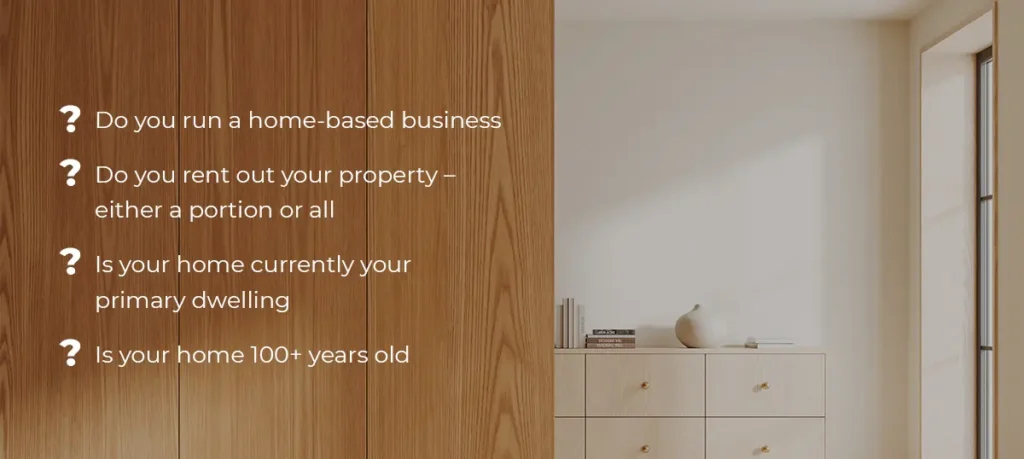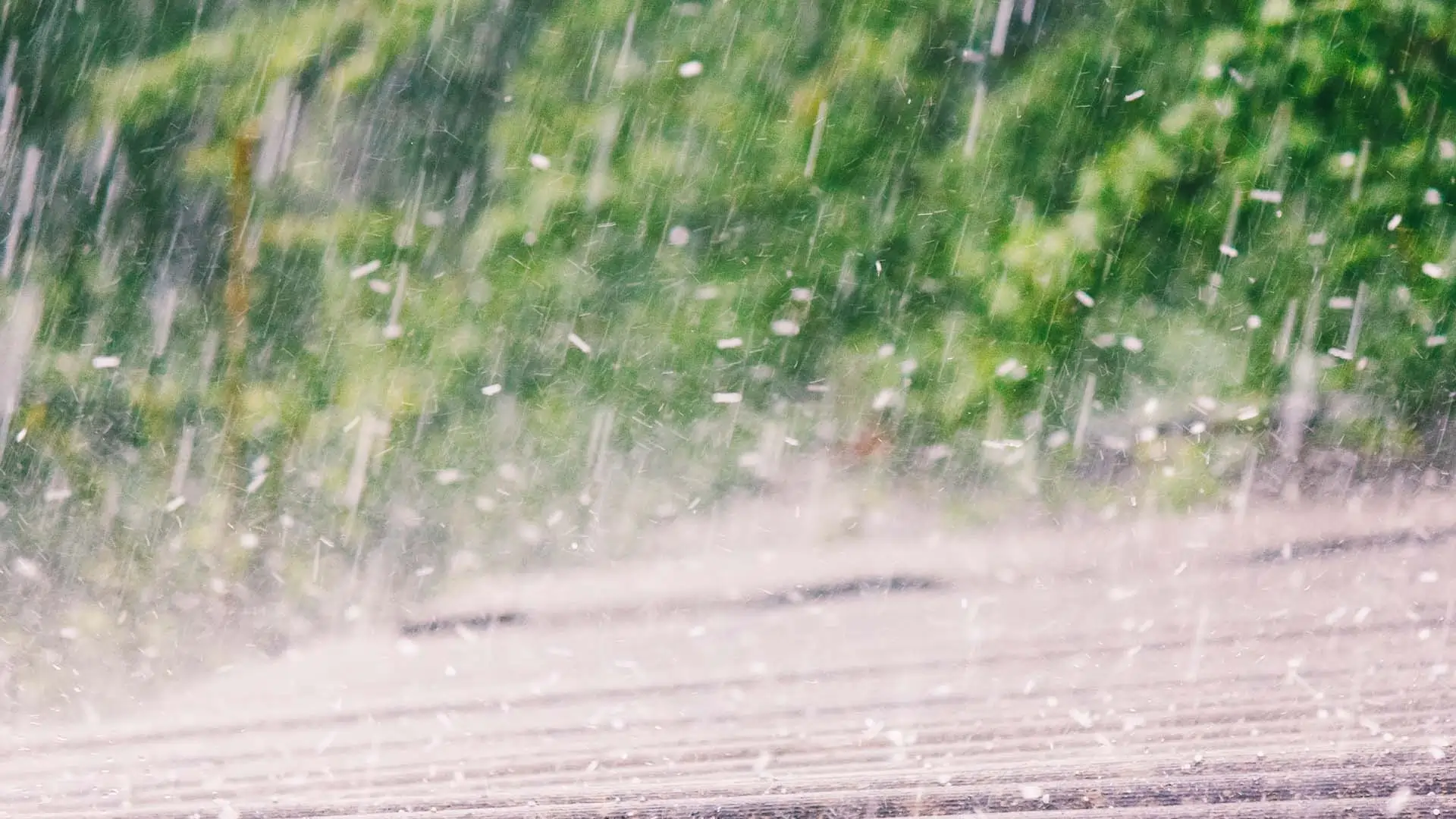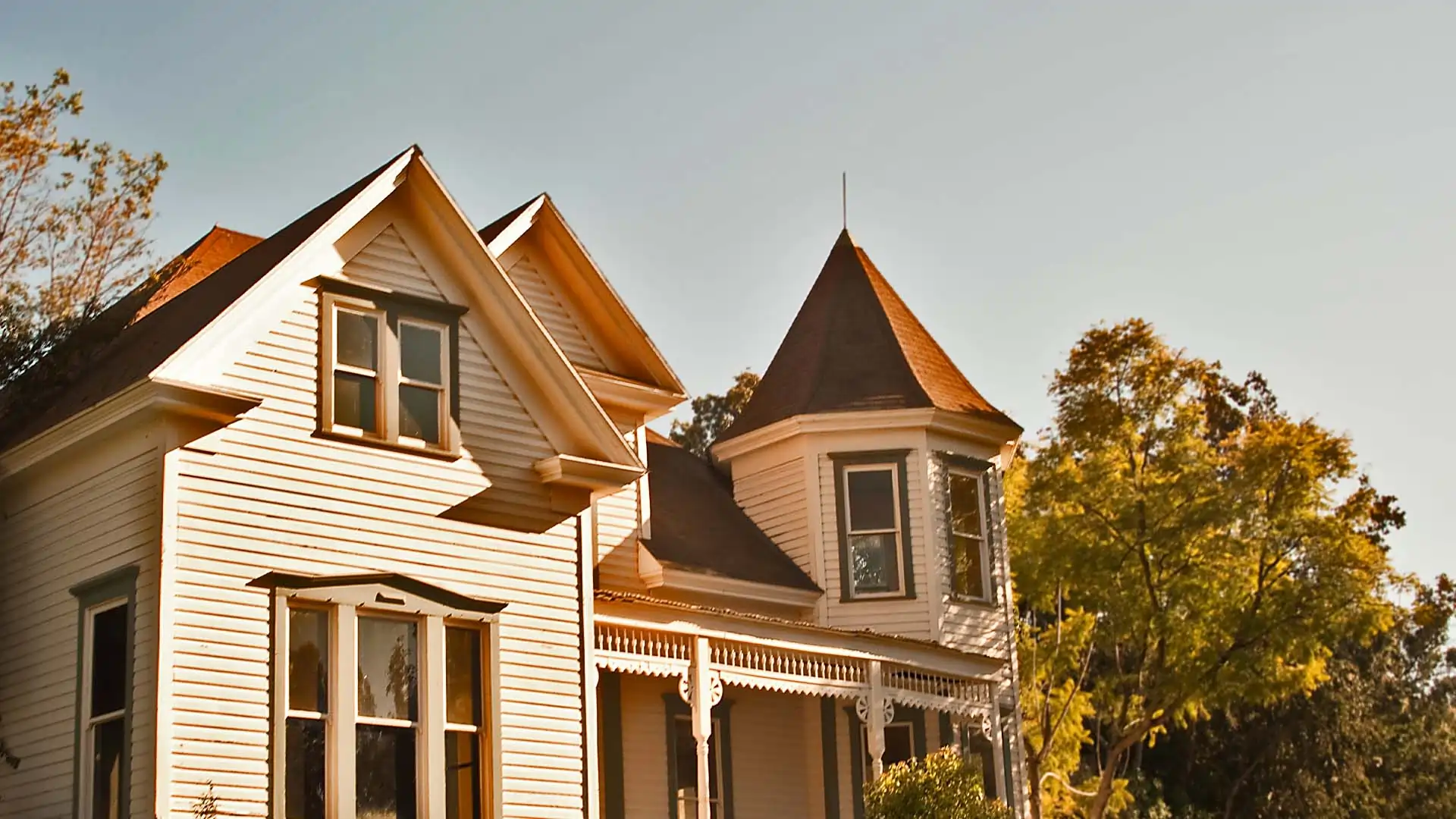Best home insurance companies in Ontario for 2025
February 05, 2025
Looking to save money in 2025? Choosing the right home insurance company can help you cut costs while ensuring you get the protection you need in the face of disaster.
With so many different providers in Ontario, choosing the best home insurance carrier can be challenging. To make it easier, we’ve taken a look at some of Ontario’s most popular providers.
Table of contents
- Comparing the best home insurance companies
- What makes an Ontario home insurance company the “best” in 2025?
- Things to keep in mind
- An insurance broker can help you get the best rate
1. Comparing the best home insurance companies
We’ve compared some of Ontario’s more popular home insurance providers based on Google reviews, company size, product offerings, and more:
| Insurance company | Types of home insurance sold | How to buy1 | Size (by premiums) | Google rating2 | ||||||
|---|---|---|---|---|---|---|---|---|---|---|
| Allstate Insurance Company of Canada | Home, condo, tenant, cottage, landlord | Agent, Direct | Large | 4.1 / 5 (8,435) |
||||||
| Aviva Canada | Home, condo, tenant, high-value, trailer, cottage, AirBnB | Broker | Large | 4.2 / 5 (4,303) |
||||||
| Belairdirect | Home, condo, tenant | Direct | Large | 4.2 / 5 (6,327) |
||||||
| CAA Insurance | Home, condo, tenant, cottage | Broker | Small | 4.1 / 5 (5,934) |
||||||
| Chubb Insurance Co. of Canada | Home, condo | Broker | Medium | 2.6 / 5 (122) |
||||||
| Commonwell Mutual Insurance Group | Home, condo, tenant, cottage, trailer | Broker | Small | 3.0 / 5 (80) |
||||||
| The Co-operators Insurance | Home, condo, tenant, cottage, trailer | Direct | Large | 4.3 / 5 (4,769) |
||||||
| Coseco Insurance | Home, condo, tenant | Broker | Small | 2.9 / 5 (142) |
||||||
| CUMIS | Home, condo, tenant | Broker | Small | 2.6 / 5 (125) |
||||||
| Desjardins Insurance | Home, condo, tenant, cottage | Agent, Direct | Large | 4.8 / 5 (17,649) |
||||||
| Dufferin Mutual Insurance Co. | Home, condo, tenant, cottage, trailer, landlord | Broker | Small | 3.9 / 5 (16) |
||||||
| Economical Insurance | Home, condo, tenant, cottage, landlord | Broker | Large | 2.0 / 5 (515) |
||||||
| Grenville Mutual Insurance Co. | Home, condo, tenant | Broker | Small | 3.7 / 5 (31) |
||||||
| Hallwell Mutual Insurance Co. | Home, condo, tenant | Broker | Small | 3.1 / 5 (18) |
||||||
| Heartland Farm Mutual Inc | Home, condo, tenant, cottage, heritage | Broker | Small | 2.5 / 5 (85) |
||||||
| HTM Insurance Co. | Home, condo, tenant, cottage, landlord, second home | Broker | Small | 3.7 / 5 (20) |
||||||
| Intact Insurance | Home, condo, tenant, cottage, landlord | Broker | Large | 3.2 / 5 (1,761) |
||||||
| Novex Insurance Co. | Home, condo, tenant, cottage, landlord | Broker | Small | 1.3 / 5 (14) |
||||||
| Northbridge Insurance | Home, condo, tenant, cottage | Broker | Medium | 3.6 / 5 (315) |
||||||
| Optimum General Insurance | Home, condo, tenant, cottage, landlord | Broker | Small | 2.7 / 5 (22) |
||||||
| Pafco Insurance | Home, condo, tenant, cottage, landlord, second home | Broker | Small | 1.7 / 5 (208) |
||||||
| Peel Mutual Insurance Co. | Home, condo, tenant, cottage, landlord | Broker | Small | 2.4 / 5 (53) |
||||||
| Pembridge Insurance Co. | Home, condo, tenant, cottage, landlord, second home | Broker | Small | 1.7 / 5 (892) |
||||||
| The Personal | Home, condo, tenant | Broker | Small | 3.0 / 5 (879) |
||||||
| Portage Mutual Insurance | Home, condo, tenant, cottage | Broker | Small | 3.3 / 5 (13) |
||||||
| RBC Insurance | Home, condo, tenant, cottage, landlord, second home | Direct | Small | 4.1 / 5 (991) |
||||||
| Scottish & York | Home, condo, tenant | Broker | Small | 1.0 / 5 (2) |
||||||
| SGI Canada | Home, condo, tenant, cottage, landlord, second home | Broker | Small | 3.0 / 5 (349) |
||||||
| Sonnet Insurance | Home, condo, tenant, landlord | Direct | Medium | – | ||||||
| TD General Insurance | Home, condo, tenant, cottage, second home, AirBnB | Direct | Large | 2.3 / 5 (887) |
||||||
| Travelers Canada | Home, condo, tenant, cottage, high-value | Broker | Medium | 2.2 / 5 (219) |
||||||
| Trillium Mutual Insurance Co. | Home, condo, tenant, cottage | Broker | Small | 3.4 / 5 (30) |
||||||
| Unica Insurance | Home, condo, tenant, cottage, second home | Broker | Small | 4.2 / 5 (266) |
||||||
| Wawanesa Insurance | Home, condo, tenant | Broker | Medium | 2.0 / 5 (495) |
||||||
| Western Assurance | Home, condo, tenant, landlord, trailer, cottage | Broker | Small | 2.2 / 5 (18) |
||||||
| 1Agent = Sells through a network of agents that only sell their products; Broker = Sells through independent brokers, who also offer quotes from other insurance companies; Direct = Sells direct to the public, usually online or by phone; 2Average Google rating for all locations present in Google Places as of Jan 15, 2025 for the company (number of reviews in parentheses); | ||||||||||
Many factors go into choosing a home insurance carrier, including its reputation, claims handling, and whether its policies meet your needs. Each of these can significantly impact your experience with that provider.
1.1 Pricing comparisons for home insurers in Ontario
The price of home insurance varies depending on a lot of things, including the provider you choose. This is why it’s so important to shop around.
Our team of insurance brokers at Mitch make this process quick and easy to do, and can provide advice on which policy is right for you.
We’ll show you how it works. We’ve taken six property profiles and pulled quotes for them from several of our insurers to demonstrate pricing differences.
| Company | Property A | Property B | Property C | Property D | Property E | Property F |
|---|---|---|---|---|---|---|
| Aviva | $7,293 | $5,559 | $7,556 | $8,246 | $3,205 | $5,546 |
| CAA | $1,369 | $1,858 | $2,039 | $902 | $996 | $1,713 |
| Travelers | $3,227 | $4,420 | $6,625 | $2,654 | $1,933 | $3,074 |
| Intact | $2,588 | $3,662 | $3,726 | $2,114 | $1,759 | $2,238 |
| Zenith | $3,227 | $4,357 | $4,716 | $1,698 | $2,062 | $3,384 |
| Portage | $1,344 | $2,335 | $2,642 | $849 | $1,031 | $1,512 |
| SGI | $2,424 | $6,236 | $3,042 | $1,668 | $2,280 | $2,421 |
| Wawanesa | $1,605 | $3,406 | $4,380 | $1,125 | $1,292 | $1,918 |
| 1Home insurance rates provided using Applied Rating Services. | ||||||
*Methodology: All policies were quoted with broad form coverage and guaranteed replacement cost and included sewer backup, overland water, and ground water coverage. We did not include discounts for credit scores (policyholders with good credit scores may have their rates reduced by 10% to 25%).
- Property A, a 1,600 sq ft. detached home with a rebuild value of $500,000, located in NIAGARA FALLS, ON.
- Single family house, two storeys, built in 2000, gas heating, vinyl exterior, asphalt roof
- Property B, a 1,900 sq ft. detached home with a rebuild value of $1 million, located in MARKHAM, ON.
- Single family house, two storeys, built in 2010, gas heating, brick exterior, asphalt roof
- Property C, a 1,100 sq ft. townhouse with a rebuild value of $530,000, located in MISSISSAUGA, ON.
- Single family townhouse, two storeys, built in 1980, electric heating, stucco exterior, asphalt roof
- Property D, a 1,000 sq ft. detached home with a rebuild value of $280,000, located in WALLACEBURG, ON
- Single family house, one storey (bungalow), built in 1990, gas heating, vinyl exterior, asphalt roof
- Property E, 1,200 sq ft. duplex home with a rebuild value of $380,000, located in LONDON, ON
- Single family duplex, one storey, built in 2005, electric heating, vinyl exterior, asphalt roof
- Property F, 1300 sq ft. detached home with a rebuild value of $530,000, located in SUDBURY, ON
- Single family house, one storey (bungalow), built in 2010, forced air, brick exterior, asphalt roof
As you can see, each property got a very different rate with a different company – but not one provider was the best option for every property. Portage may have given Property D an excellent rate, but CAA had the lowest price for Property B. Had Property B gone with Portage, they may never have known their best price was with CAA.
Property D also had some of the lowest quoted rates (especially as it had the lowest rebuild value) but Aviva quoted it at over $8,000. This could be for many reasons – the home’s age, its location in Wallaceburg, etc.
Aviva had some of the highest rates for most properties, but this was also because Aviva offered the most comprehensive package with higher limits and enhanced options for each endorsement. Despite its higher price tag, Aviva might be an ideal option for someone who’s looking for more comprehensive coverage and greater peace-of-mind in exchange for greater premiums.
1.2 Comparing home insurance provider coverage offerings
Every home insurer offers different coverages. Working with a broker can help you find the carrier that offers the policy best suited to your needs.
Each company has something different to offer based on its unique underwriting philosophy, risk appetite, or the demographic it’s targeting. The table below shows how a few different companies compare when it comes to specific offerings, coverage forms, and endorsements:
| Company | Guaranteed Replacement Cost | Multi-Line Discounts | Overland Water/Sewer Backup | Home-Based Business |
|---|---|---|---|---|
| Aviva | Yes – except log construction and heritage homes | Yes – car and home (including tenant) | Yes – both available for homeowners, tenant, and condo | Yes – offers home-based business extension for up to $150,000 in gross sales |
| CAA | Yes – for comprehensive and broad form coverages | Yes – car and home (tenant and condo variable – ask a broker) | Yes – certain limits may apply to different locations | Yes – offers home-based business extension for up to $50,000 in gross sales |
| Intact | Yes – for comprehensive and broad form coverages | Yes – car and home (tenant and condo variable – ask a broker) | Yes – included in enhanced water damage package, limits depend on location | Yes – offers home-based business extension for up to $500,000 in gross sales |
| Max | Yes – except log homes and homes built before 1950 | May vary – ask a broker | Yes – both available for homeowners, tenant, and condo | Yes – business liability/business property for up to $50,000 in gross sales |
| Zenith | Yes – for comprehensive and broad form coverages | Yes – car and home (tenant and condo variable – ask a broker) | Yes – both available | Yes – offers home-based business endorsement for max up to $250,000 in gross sales |
| Portage | Yes – except for heritage homes, log homes, and unique constructions) | Yes – car and home, condo, and tenant (including seasonal residences) | Yes – both available, limits may apply to different locations | Yes – offers business at home extension for p to $100,000 in gross sales |
| SGI | Yes – except dwellings under construction, mobile homes, trailers, and non-traditional properties | Yes – car and home (tenant and condo variable – ask a broker) | Yes – limits depend on location, preventative measures, and five-year history | Only covers incidental business use not increasing property or liability exposure |
| Travelers | Yes – must submit approved replacement cost estimation or appraisal evidence. | Yes – car and home, tenant, and condo | Yes – limits depend on location and mitigation efforts | Yes – offers home business endorsement for up to $200,000 in gross sales |
| Wawanesa | Yes – certain eligibility requirements may apply | Yes – car and home, condo and tenant (other products may qualify – ask a broker) | Yes – limits depend on location | Yes – offers home-based business coverage, comp, broad, and basic for up to $200,000 in gross sales |
1.3 Comparing standard home insurance vs non-standard (high-risk) home insurance & what you need
In insurance, there are standard and non-standard homes. Not all insurance companies will cover non-standard homes.
A standard home fits the bill of your conventional, traditional house. It’s not unique in its construction (architectural style, materials used, custom design, etc.), is under 100-years-old, and occupied year-round. A non-standard home, on the other hand, may be any of the following:
- A property with a history of frequent OR expensive insurance claims
- A property that is over 100 years old or has outdated wiring, heating, plumbing, etc.
- A mobile home or manufactured home (including trailers)
- A property not occupied year-round or occupied seasonally
- A property of significant value or with high-value contents, like fine art
- A property that is rented out on a monthly or even yearly basis
A standard home can typically be insured by most providers, but few will provide coverage for a non-standard home. For non-standard homeowners, insurance can be more challenging to find and more expensive.
Your broker will ask a lot of questions about the usage of your property. This is to ensure that they can match you with the right insurance company for your needs.

They may ask:
- If you run a home-based business
- If you rent out your property – either a room or the whole building
- If your home isn’t currently your primary dwelling
- If your home is over 100 years old
2. What makes an Ontario home insurance company the “best” in 2025?
Choosing the best home insurance company is about more than just price. Yes, budget is important, but you’ll also want to be sure your policy is there to cover you in case of the unexpected.
Here are our recommendations for evaluating the quality of an Ontario home insurance provider:
2.1 Google reviews
Google reviews are notoriously negative and aren’t always a solid representation of an insurer, but they can be used to indicate trends. Keep an eye out if you see a company receiving lots of reviews for any of the following: bad at answering the phone, poor claims support, etc.
2.2 Company size
Larger companies may have more resources to handle claims faster during major disasters, but they may not be as good at answering the phone for basic inquiries and policy modifications.
On the other hand, small companies can offer more personalized customer service due to fewer clients, but in the event of a large disaster they may need to outsource claims service which can slow down the process of getting your settlement.
3. Things to keep in mind
It’s easy to choose an insurance company based on price, but with more catastrophic losses happening, it’s important to focus on the quality of coverage. Working with an insurance broker ensures you find a company that:
- Provides the coverage your need
- Offers great rates
- Provides quality customer and claims service
4. An insurance broker can help you get the best rate
Shopping for insurance on your own can be time-consuming, overwhelming, and there’s no guarantee you’ll find the best option. This is where Mitch comes in.
Mitch works with many of the best home insurance companies in Ontario, including those that don’t sell directly to consumers. We don’t just secure great coverage – we advocate for you during claims and serve as your go-to for all things insurance. Call us today to get started!
Looking for home insurance?
Speak with a Mitch Insurance broker today to get a quote on home insurance in Ontario.
Call now
1-800-731-2228






















